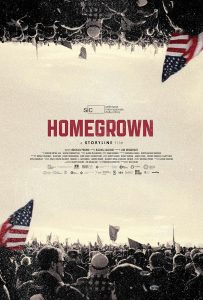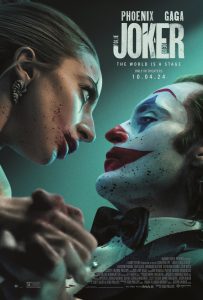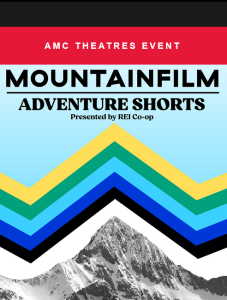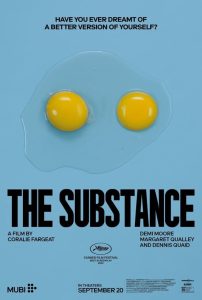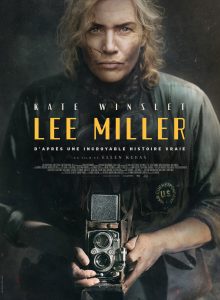7 hong Kong Cinema Favorites from Director Wong Kar Wai, Restored and Streaming
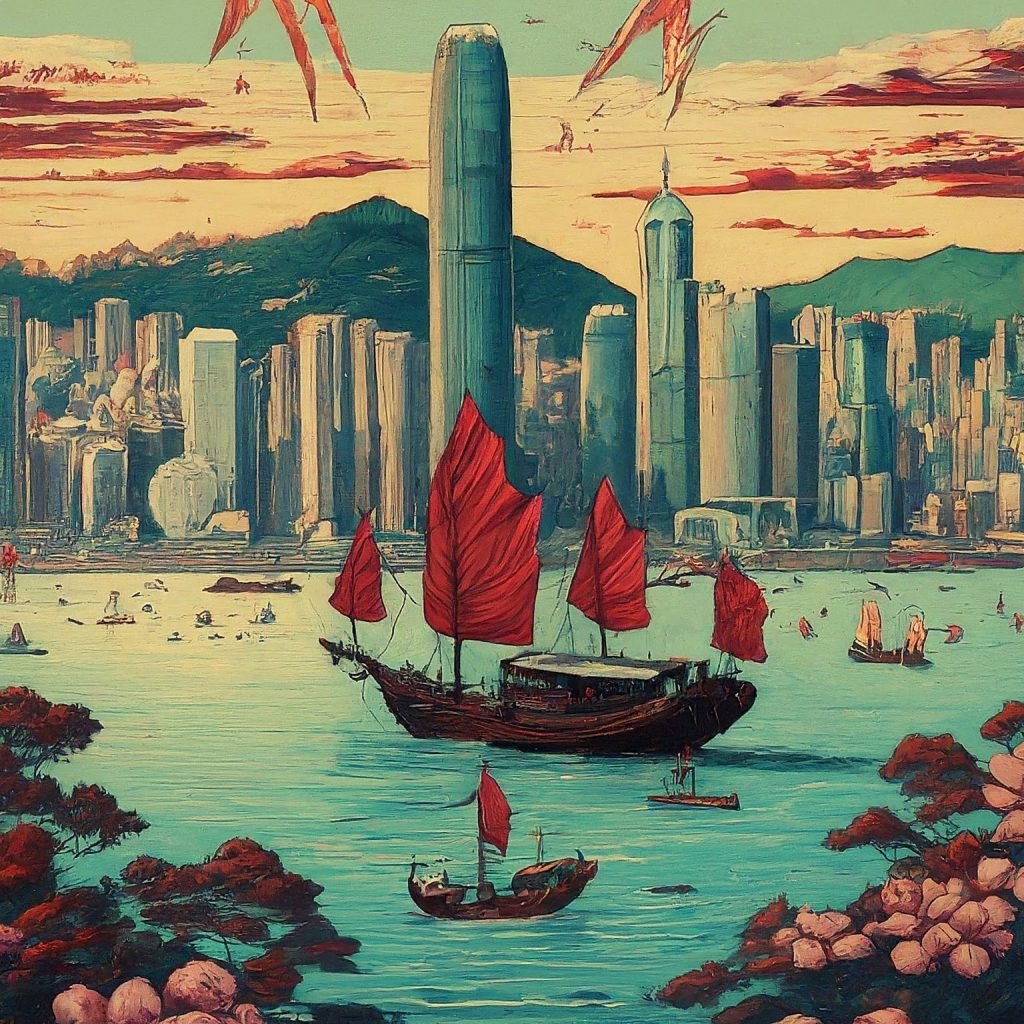
Wong Kar-wai is not just a filmmaker; he’s a poet of the visual medium. This Hong Kong director, born in 1958, transcends mere storytelling, weaving tales bathed in neon hues, steeped in melancholic longing, and pulsating with a unique rhythm all his own. His films are like dreamscapes – fragmented, evocative, and deeply personal, transporting audiences to a world where emotions simmer beneath the surface and memory paints the narrative in vibrant strokes.
Wong’s artistic journey began as a graphic designer, but filmnoir and the works of French New Wave directors like Jean-Luc Godard and François Truffaut ignited his passion for storytelling. He found inspiration in the fragmented narratives of Latin American author Manuel Puig, who influenced his early work like “As Tears Go By” (1988). But it was his collaboration with cinematographer Christopher Doyle that truly birthed his signature style. Together, they experimented with lighting, slow-motion, and bold colors, creating visuals that resonate long after the credits roll.
Wong Kar-wai’s personal style transcends mere aesthetics by carefully crafting storytelling techniques, visual flourishes, and thematic explorations. Wong forgoes linear storylines and often fractures time, jumping between characters’ perspectives and utilizing flashbacks in a non-chronological manner. This approach reflects the elusive nature of memory and the subjective experience of emotions; it forces viewers to become active participants, piecing together the stories and interpreting their emotional core.
Time becomes a malleable entity and slow-motion scenes stretch out moments of intimacy, loss, or contemplation, imbuing them with a heightened significance. Viewers can dwell on fleeting actions and expressions, amplifying the emotional impact of each scene. Christopher Doyle’s masterful collaboration with Wong created a visually stunning tapestry. Bold color palettes, innovative camerawork, and dramatic lighting contribute to the dreamlike atmosphere. Neon signs blaze, rain-slicked streets shimmer, and close-ups capture the raw vulnerability of characters. Every frame is a visual poem, meticulously designed to evoke emotion and set the mood.
Add to that the music, which always plays a pivotal role in Wong’s storytelling. He often incorporates international pop ballads, creating a melancholic soundtrack that reflects the characters’ inner turmoil. The music transcends mere background scoring, becoming an integral narrative element that underscores the emotional journey.
The bustling cityscape of Hong Kong serves as a backdrop for many of Wong’s films. Despite the vibrant streets and crowded spaces, his characters often feel isolated and disconnected. He explores themes of longing, unspoken desires, and the search for connection in a modern world that can feel alienating. Certain motifs become visual signatures, carrying symbolic weight and evoking specific emotions. Cigarette smoke lingers, expressing melancholy and fleeting moments. Noodle restaurants offer solace and fleeting connection. Hotel rooms become temporary havens, highlighting the transitory nature of life. There’s an undeniable undercurrent of sadness in Wong’s films. However, it’s never maudlin or overwrought. Instead, it’s a bittersweet beauty that resonates with the human experience of loss, yearning, and the bittersweet passage of time.
Wong Kar-wai’s personal style is more than just an assemblage of techniques. It’s a distinct cinematic language that reflects his worldview, explores human emotions with nuanced depth, and leaves a lasting impression on viewers willing to immerse themselves in his unique vision. From the hauntingly beautiful “Chungking Express” (1994) to the visually stunning “In the Mood for Love” (2000), Wong’s films explore themes of love, loss, and longing with a poetic touch. His characters, often lost in the urban sprawl of Hong Kong, search for connection in the fleeting moments of everyday life. Time, fragmented and malleable, becomes a central character itself, with stories told in non-linear narratives that reflect the hazy dance of memory and desire.
Among his many gems, some stand out as defining pieces. “Chungking Express” intertwines two love stories, capturing the frenetic energy and loneliness of city life. “In the Mood for Love” is a masterpiece of restrained passion, a slow-burning exploration of unspoken desires and missed connections. “2046” (2004) delves into themes of sci-fi, memory, and the elusive nature of love, further solidifying Wong’s unique vision.
Wong Kar-wai is not for everyone. His films are slow burns, demanding patience and immersion. But for those who surrender to his world, the rewards are immense. He’s a filmmaker who paints with light and emotion, leaving an indelible mark on the cinematic landscape. So, dim the lights, silence the distractions, and prepare to be swept away by the mesmerizing world of Wong Kar-wai.
As Tears Go By
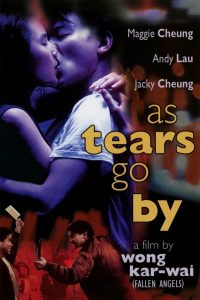
Release: 1988
Genre: Crime / Drama
Love for a distant relative causes a Chinese gangster to consider leaving the Triad, but despite his best efforts, circumstances and problems caused by an errant younger brother keep pulling him back into the lifestyle.
Characters speak Cantonese; no dubbed English version is available. The movie is available with English subtitles; no Chinese subtitles are available.
Days of Being Wild
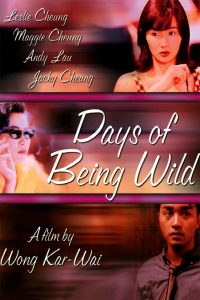
Release: 1990
Genre: Romantic, drama
Yuddy, a Hong Kong playboy known for breaking girls’ hearts, tries to find solace and the truth after discovering the woman who raised him isn’t his mother.
Characters speak Cantonese; no dubbed English version is available. The movie is available with English subtitles; no Chinese subtitles are available.
Chungking Express
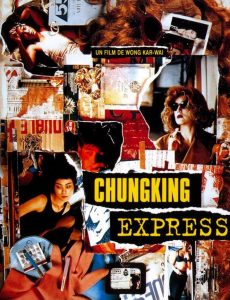
Release: 1994
Genre: Drama
Every day, Cop 223 buys a can of pineapple with an expiration date of May 1, symbolizing the day he’ll get over his lost love. He’s also got his eye on a mysterious woman in a blond wig, oblivious of the fact she’s a drug dealer. Cop 663 is distraught with heartbreak over a breakup. But when his ex drops a spare set of his keys at a local cafe, a waitress lets herself into his apartment and spruces up his life.
Characters speak Mandarin and Cantonese; no dubbed English version is available. The movie is available with English subtitles; no Chinese subtitles are available.
Fallen Angels
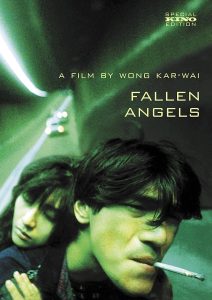
Release: 1995
Genre: Crime / Drama
An assassin, his boss, an entrepreneur and two women cross paths in Hong Kong as their professional and love lives collide and influence each other, mostly without their knowledge.
Characters speak Cantonese; no dubbed English version is available. The movie is available with English subtitles; no Chinese subtitles are available.
Happy Together
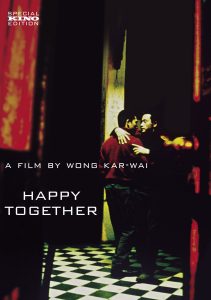
Release: 1997
Genre: Drama
Happy Together is the story of two men who move to Argentina. The move puts additional stress on their already fractured relationship.
Characters speak Cantonese; no dubbed English version is available. The movie is available with English subtitles; no Chinese subtitles are available.
In the Mood for Love
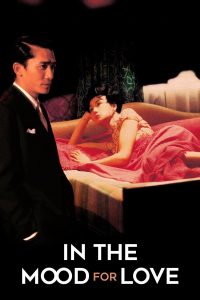
Release: 2000
Genre: Romantic, drama
In the Mood for Love is a classic Cantonese language film about infidelities, lies, and confrontation. Set in 1962 Hong Kong, the story follows two couples who are neighbors in their Hong Kong apartment complex. Over time, a friendship forms between Mr. Chow and Ms. Su, and they begin to fall for each other. They learn that their own spouses are cheating on them.
Characters speak Cantonese; no dubbed English version is available. The movie is available with English subtitles; no Chinese subtitles are available.
2046
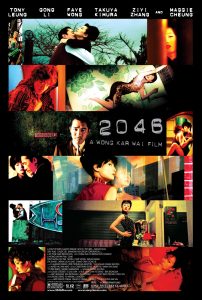
Release: 2004
Genre: Crime / Drama
He was a writer. He thought he wrote about the future but it really was the past. In his novel, a mysterious train left for 2046 every once in a while. Everyone who went there had the same intention… to recapture their lost memories. It was said that in 2046, nothing ever changed. Nobody knew for sure if it was true, because nobody who went there had ever come back – except for one. He was there. He chose to leave. He wanted to change.
Characters speak Cantonese and Mandarin; no dubbed English version is available. The movie is available with English subtitles; no Chinese subtitles are available.
So, what did you think of this list? Which movies were most influential in your life? Let us know in the comments. And let us know too if we missed your favorite Wong Kar Wai film.

